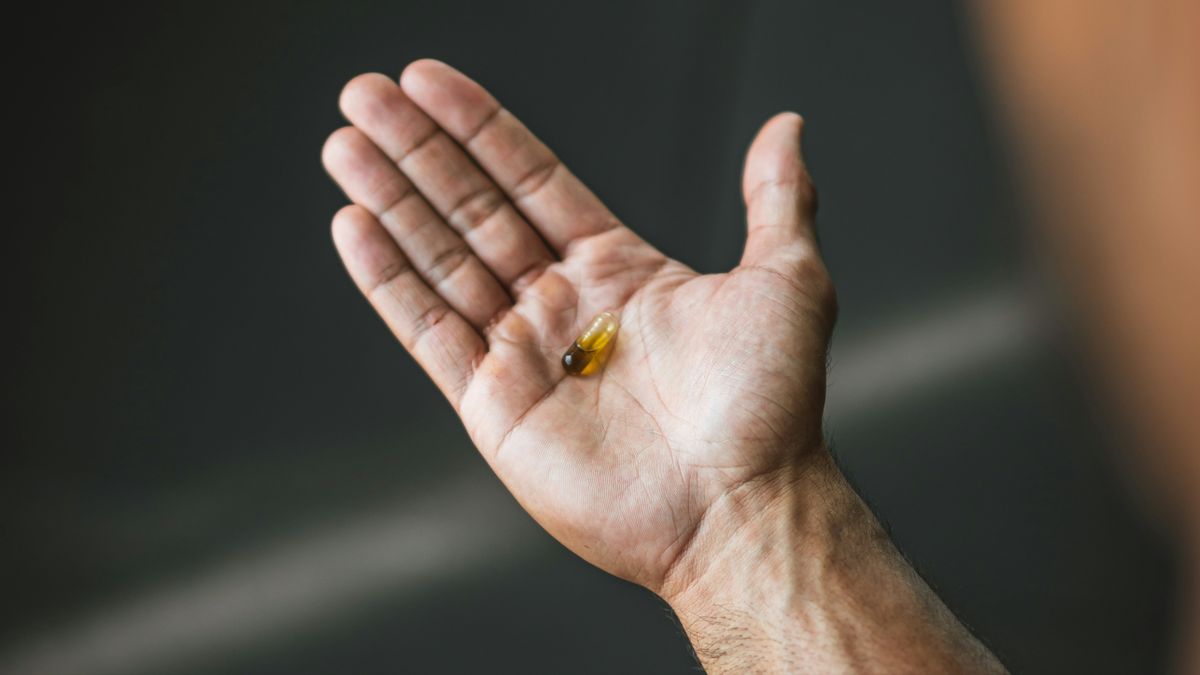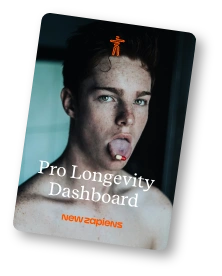How vitamin D can add years to your life

Vitamin D, often referred to as the "sunshine vitamin," is a vital nutrient that plays a starring role in your overall health and longevity. It's more than just about building strong bones – think of it as a superhero with superpowers that touch almost every aspect of your well-being. Intrigued? Let's dive deeper!
Essential for Bone Health and Beyond
When its about bone health we all know that calcium is crucial and important, but vitamin D is the behind-the-scenes director, which ensures proper absorption of calcium. Insufficient amount of vitamin D in the body can make bones become weak and brittle, increasing the risk of fractures buts that's not all. Vitamin D also flexes its muscles in regulating your immune system, keeping you shielded from infections and illnesses. Think of it as your body's armor!
How to Get Your Daily Dose of Vitamin D
The Sunshine Energy
The sun is the primary source of vitamin D. Your body starts producing vitamin D just as those summer rays fall on your skin and body. Now you might be wondering what about winter? Specially if you live in a place with limited sunshine? Don't worry, there are other ways to get your daily dose.
Food Sources:
Some foods are excellent sources of vitamin D such as fatty fish like salmon, tuna, and mackerel. Mushrooms that have been exposed to UV light also contain vitamin D.
Fortified Foods:
Many foods, such as milk, cereals, and orange juice, are fortified with vitamin D, making it an easy way to boost your intake.
Vitamin D Supplements:
If you're deficient in vitamin D or have limited sun exposure, talk to your doctor about supplements.
Potential Disease Prevention
Research suggests that adequate vitamin D levels might be linked to a reduced risk of chronic diseases such as heart disease, diabetes, and even certain cancers. While more studies are needed to fully understand the cause-and-effect relationship, keeping your vitamin D levels in check can be a powerful step towards a healthier you.
Cardiovascular Health
Research indicates that low serum vitamin D levels are associated with heightened risks of cardiovascular diseases (CVD), which are among the leading causes of mortality globally.
Metabolic Disorders
Vitamin D is also recognized for its role in glucose metabolism and the prevention of diabetes. Several studies have found an inverse relationship between vitamin D levels and the risk of developing type 2 diabetes and glucose intolerance. Deficiency in vitamin D may lead to insulin resistance, thereby exacerbating the risk of metabolic disorders.
Cancer
The relationship between vitamin D and cancer remains complex. Although current literature does not robustly support a direct role of vitamin D in cancer risk reduction, some observational studies suggest that adequate vitamin D levels may be inversely related to the risk of certain cancers.Despite the need for more definitive evidence, the immunomodulatory effects of vitamin D could potentially contribute to reduced cancer risk through enhanced immune response and regulation of cellular differentiation
Immune Function
Vitamin D is an essential immunomodulatory hormone that influences both the innate and adaptive immune systems. A deficiency in vitamin D has been recognized as a risk factor for respiratory infections and has been linked to increased severity of illnesses such as pneumonia. Given its vital role in immune regulation, maintaining sufficient vitamin D levels is important for overall health and longevity, particularly in older adults whose immune systems may already be compromised.
Are You Getting Enough Sunshine Vitamin?
Many people, especially older adults, and individuals with limited sun exposure, are at risk of vitamin D deficiency. The best way is to have a simple blood test which can determine your vitamin D levels. If you're deficient, don't fret! There are practical steps you can take to increase your intake and unlock the incredible health benefits of vitamin D.
Research and Studies
The Role of Vitamin D in Aging
Numerous studies have highlighted the significance of vitamin D in promoting healthy aging and longevity. Research indicates that adequate levels of serum vitamin D can help mitigate the effects of aging by supporting cellular functions and reducing inflammation, which is crucial given the impact of chronic inflammation on age-related degeneration.
Vitamin D Deficiency and Age-Related Diseases
A meta-analysis showed that vitamin D deficiency is prevalent among older adults, particularly those living in lower-middle-income countries.The implications of this deficiency are serious, as low levels of vitamin D have been linked to an increased risk of developing conditions such as osteoporosis, cardiovascular diseases, and cognitive decline
Vitamin D and Telomere Biology
Recent studies have suggested a connection between vitamin D and telomere biology, an area crucial to understanding cellular aging. Telomeres, which protect the ends of chromosomes and maintain genomic stability, shorten with each cell division and are considered markers of cellular aging.
Practical Sunshine Tips for Daily Living
Embrace the Morning Sun:
Aim for 10-15 minutes of unprotected sun exposure (without sunscreen) on your face, arms, or legs during the early morning hours.
Dietary Choices:
Include vitamin D-rich foods like fatty fish and fortified products in your diet.
Supplementation:
Consider taking vitamin D supplements, especially if you have limited sun exposure or belong to a high-risk group.
Talk to Your Doctor:
Discuss your vitamin D levels and needs with your doctor to create a personalized plan.
By incorporating these tips and maintaining healthy vitamin D levels, you can empower your body tofight off illness, promote strong bones, and potentially reduce your risk of chronic diseases. So, step into the sunshine, embrace the power of vitamin D, and invest in a longer, healthier you!
References
Author: Batool Hassan
A health enthusiat making great impact by embracing healthier habits and lifestyle. The goal is to be the best version of myself.




